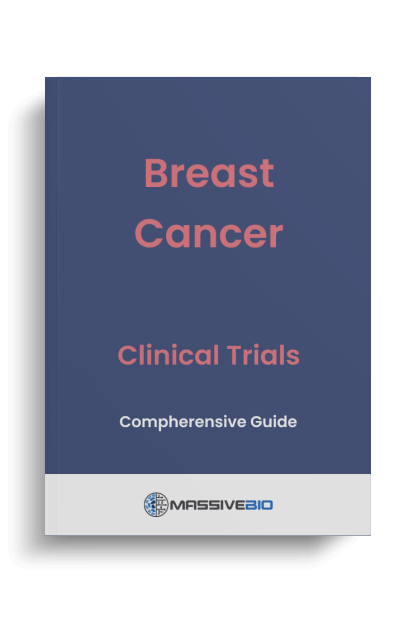A Guide To Breast Cancer Clinical Trials
This actionable breast cancer guide lays out the considerations when managing your diagnosis to help you with the process and to make sure no step is missed along the way.
Understanding
Breast Cancer
Breast cancer is a disease where malignant cells form in the tissue of the breast. It is the second most common cancer type for women with 12.8% of women being diagnosed throughout their life. Even though most people think of women when it comes to breast cancer, roughly 1% of patients are male.
There were over 268,000 new cases last year alone. By far, the most common screening method for breast cancer is a mammogram. For those who have a family history or at a high risk of breast cancer, MRIs are also used.
The most common breast cancer types are:
- Ductal Carcinoma
- Lobular Carcinoma
- Invasive Breast Cancers
- Ductal Carcinoma In Situ (DCIS)
- Invasive Breast Cancer (ILC or IDC)
- Triple-Negative Breast Cancer
- Inflammatory Breast Cancer
- Paget Disease Of The Breast
- Angiosarcoma
- Phyllodes Tumor
How Clinical
Trials Can Help
There are close to 1,000 breast cancer clinical trials recruiting in the United States. These trials are investigating new treatments and detection methods that could save lives in the future such as:
- Biomarker-based targeted therapies
- Immunotherapy used in combination with chemotherapy
Participating in a clinical trial not only progresses much needed research but gives patients access to these new innovative therapies years before the general population.
How We
Can Help
The common tests you should receive when diagnosed with breast cancer are a breast exam, mammogram, ultrasound, biopsy and MRI. In certain cases, additional tests are done to assist with staging, such as blood tests, bone scans, CT scans or PET scans. It is important to get the right tests to best decide your treatment options. Next Generation Sequencing (NGS) can help you determine your biomarker status, to assist in the selection of treatment.
Our Artificial Intelligence (AI) powered Clinical Trial Matching System connects patients and their treating oncologists to clinical trials according to their unique cancer case.
We enlist dedicated staff to collect medical records and treatment history and match patients to eligible trials near their home. We provide full support throughout your enrollment process to ensure logistics are handled so you can concentrate on your health.




